In the Pittsburgh region, it’s common to find middle school teachers collaborating with world-class universities on STEM learning projects. A working artist might step in as a substitute teacher in a public school classroom, while kids and parents are busy learning urban gardening side by side with community leaders.
This same kind of creative collaboration is in the air in Doha, Qatar’s fast-growing capital city, where the Education City campus is home to seven international universities. To leverage this resource and build fruitful relationships with these world-class educators, Doha’s K-12 schools have created new positions – collaboration experts, who find ways to bring the cutting-edge learning happening at these universities and all kinds of resources from elsewhere in the community into the lives of young students.
And this spring across Uruguay, dozens of innovative, pop-up educational events will be happening in museums, libraries and even in public parks. This wide range of free events are designed to help families explore and learn together in a playful, accessible and inclusive way.
The ecosystems in Pittsburgh, Doha, and Uruguay may be at different stages in their development, but each of these regions offer powerful opportunities to students and their families.
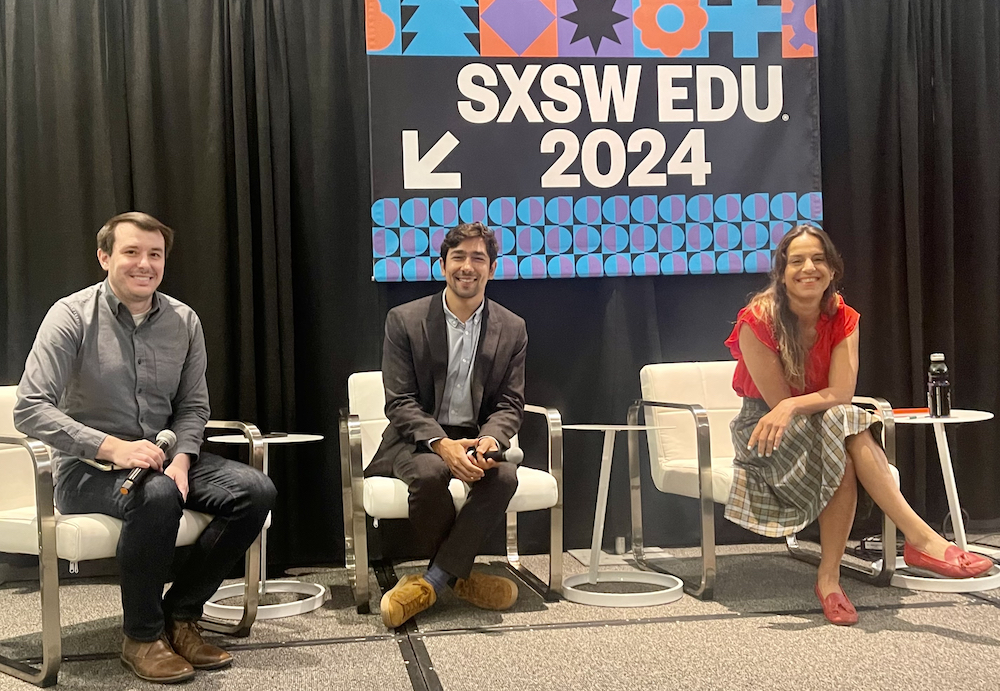
With the goal of sharing this progress with additional communities around the world, three learning ecosystem leaders from these regions gathered to host a panel at the recent South By Southwest EDU conference in Austin, Texas. The panelists – WISE program manager Aurelio Amaral, Educate Uruguay founder Cecilia de la Paz and Remake Learning executive director Tyler Samstag – began by answering a key question for their audience of global educators: What exactly are learning ecosystems?
“We define learning ecosystems as purposeful connections among different organizations and stakeholders that come together to create and deliver a broader spectrum of learning opportunities to learners and their communities,” Amaral told the audience.
Collaboration is at the heart of this work. But Amaral noted that doesn’t mean simply forming temporary, transactional partnerships. In a true learning ecosystem, connections continue and grow in a purposeful way, with an interdependence that’s similar to a thriving biological system.
When WISE released a detailed report on local learning ecosystems in 2019, the researchers explained that just like biological ecosystems, learning ecosystems “can adapt and respond to learner needs and changes of institutional environments.”
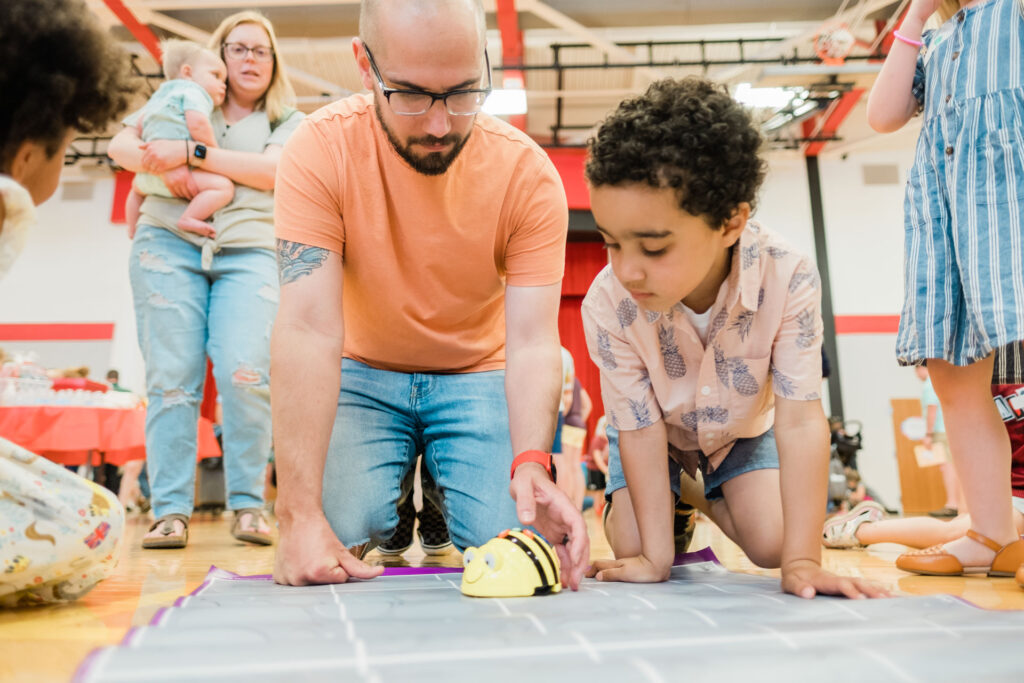
Most often, learning ecosystems include a mix of formal and informal learning providers, including schools, libraries, museums and civil society organizations, as well as online learning providers, local businesses and industry partners who help bridge the gap between schooling and the job market.
But “each community has their own strengths and challenges,” Amaral said. So learning ecosystems look different around the world and constantly evolve.
What can this look like in practice? The panelists explored the tactical efforts each region has made to create their ecosystem and the unique ways these ecosystems have evolved.
Samstag spoke about the origins of the Remake Learning network, which grew out of small-group conversations over shared meals. This was happening in 2007, the dawn of the smartphone era. It was a moment when classroom teachers and afterschool educators alike were suddenly struggling to connect with students who had digital devices in their pockets for the first time.
This presented a challenge, and yet it offered so much possibility. So these educators began discussing: How do we meet this moment? How might we think differently about things like assessments? And how might we connect with one another and with our students, so that learning really does happen everywhere?
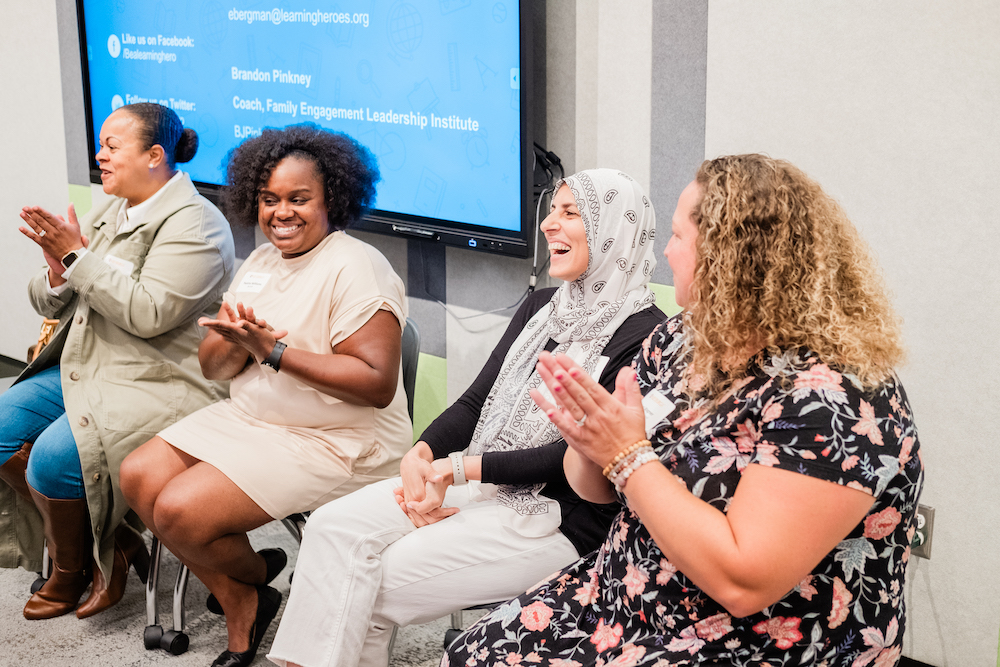
When you convene people, Samstag said, you identify shared interests and can then bring people together consciously in working groups. Remake Learning has launched a civics working group later this spring and is planning a group to explore the challenges and opportunities of artificial intelligence in education.
Nearly 17 years later, Remake Learning continues cultivating an environment that encourages true collaboration. The organization also makes “little bets” on promising ideas, offering small grants to help new ideas grow and new connections become stronger. Members of Pittsburgh’s learning ecosystem also make time for celebrating big and small wins – and for sharing discoveries with one another.
As this work grew in Pittsburgh, Amaral said, it inspired the team at WISE to ask: What strategies are we seeing in Remake Learning and other learning ecosystems that we can use to mobilize our own community and to help other communities around the world to do similar work?
Among them: Map out the key players in your education community and consider who might begin playing a more prominent role. Major universities like those in Doha’s Education City are important stakeholders that can provide funding and opportunities to others. But many smaller stakeholders who may not drive big initiatives also play vital roles.
“That’s the beauty of it,” Amaral said. “Map out the anchor actors,” but keep in mind all the others who can support the learning ecosystem and help it thrive.
Along the way, another key step is creating systems to help all the players get to know one another and know what others are doing. Help busy school leaders to know what’s coming up at a local museum and know which after school programs might be a great fit for particular students.
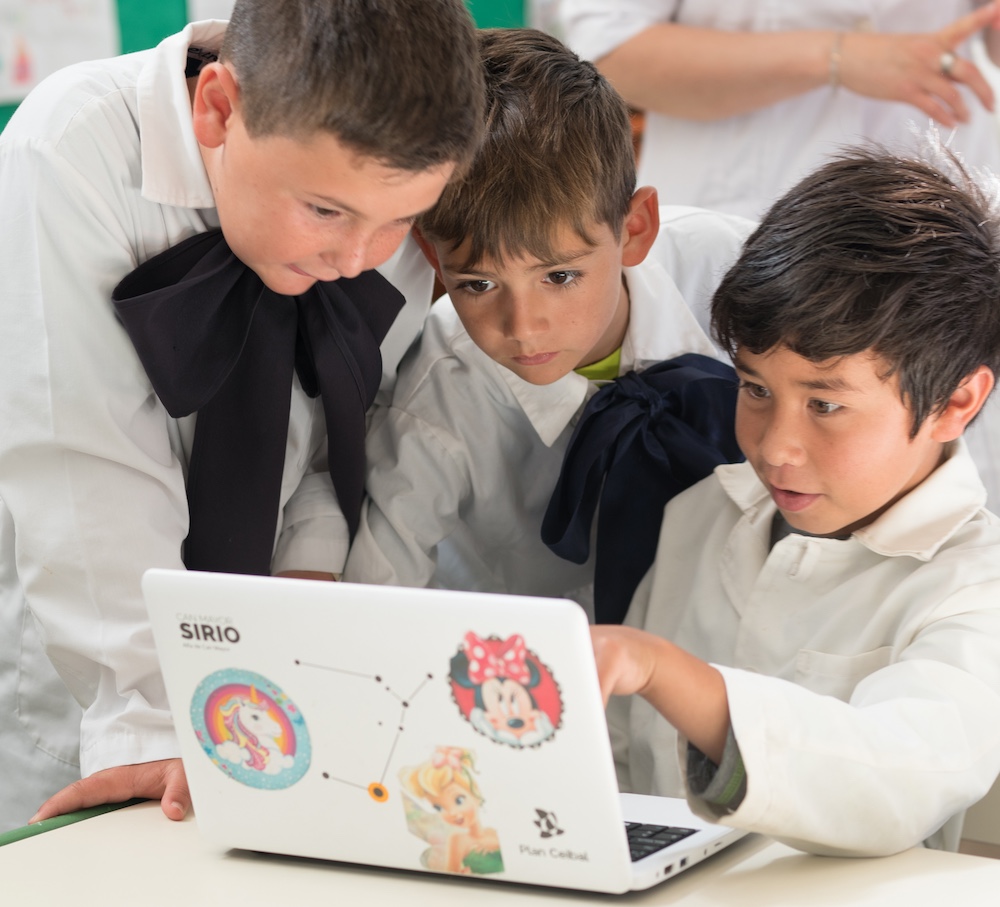
This is happening in Uruguay and will grow further during this year’s Eureka! Learning Days festival. De la Paz discovered the Remake Learning Days festival, held annually in the Pittsburgh area since 2016, during a conversation with Samstag at the 2022 hundrED Innovation Summit. They agreed to partner on creating a festival in Uruguay, which is now in its second year.
The personal connection Samstag and de la Paz built, and the personal connections that have begun growing between educators in Uruguay thanks to the festival, are the backbone of a thriving ecosystem.
“At Educate Uruguay, we work in the countryside and we work very specially to bring back the joy of learning,” de la Paz said. Though this work involves innovative uses of technology, learning “is a human business” and happens when people of all ages connect in a human way with one another.
“How might we mobilize others to inspire the next generation with their own knowledge and passions?” de la Paz asked the SXSW audience. It begins with human connection.
Last year’s inaugural festival introduced educators who had been operating in the same neighborhood for years but never met each other before. And in order to launch the festival, de la Paz needed to build her own authentic connections with people who could help her make this ambitious event happen.
How did de la Paz motivate members of her ecosystem to get involved? “We needed the golden 10,” she said, “the first 10 brave people that say, ‘I can do it.’”
With support from those key players, a total of 37 hosts held 40 events throughout more than half of Uruguay’s 19 provinces. Many agreed to return for this year’s festival, happening April 25-27, and the Educate Uruguay team expects even more educators and community members to host events this year.
As they build their local ecosystem, the Educate Uruguay team is inspired by the progress they see around the world.
In just a handful of examples that Samstag shared, one Pittsburgh school district collaborated with a children’s museum to design an innovative elementary/middle school building. In another district, a charter school and a museum for teen learners began sharing space in an incredible, renovated library building. And in yet another district, a former hospital building has become a shared hub for a K-12 school, education nonprofits and healthcare startup companies.
And in Doha, public school administrators who are new to the job of building collaborations with other ecosystem players are now partnering with private school administrators who have partnership-building experience.
The details vary from country to country, city to city and even neighborhood to neighborhood. But throughout the world, when you forge these human connections and consciously help the members of your learning ecosystem partner in meaningful ways, Amaral said, “that’s when you have the highest success rate.”
Want to learn more? Listen to the full panel here: https://schedule.sxswedu.com/2024/events/PP135850
Authored by
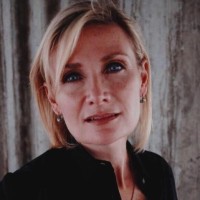
Melissa Rayworth
Melissa Rayworth has spent two decades writing about the building blocks of modern life — how we design our homes, raise our children and care for elderly family members, how we interact with pop culture in our marketing-saturated society, and how our culture tackles (and avoids) issues of social justice and the environment.
